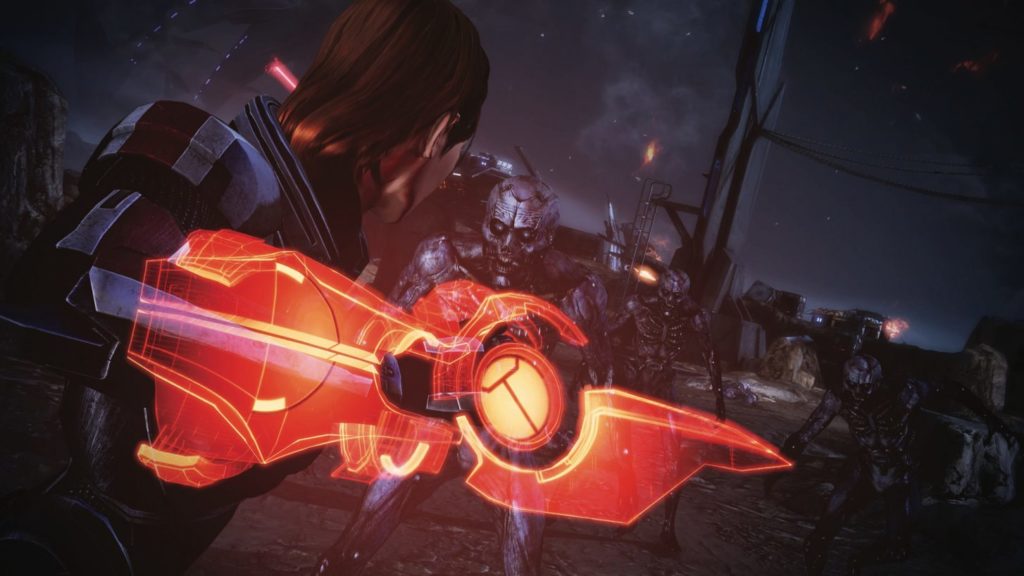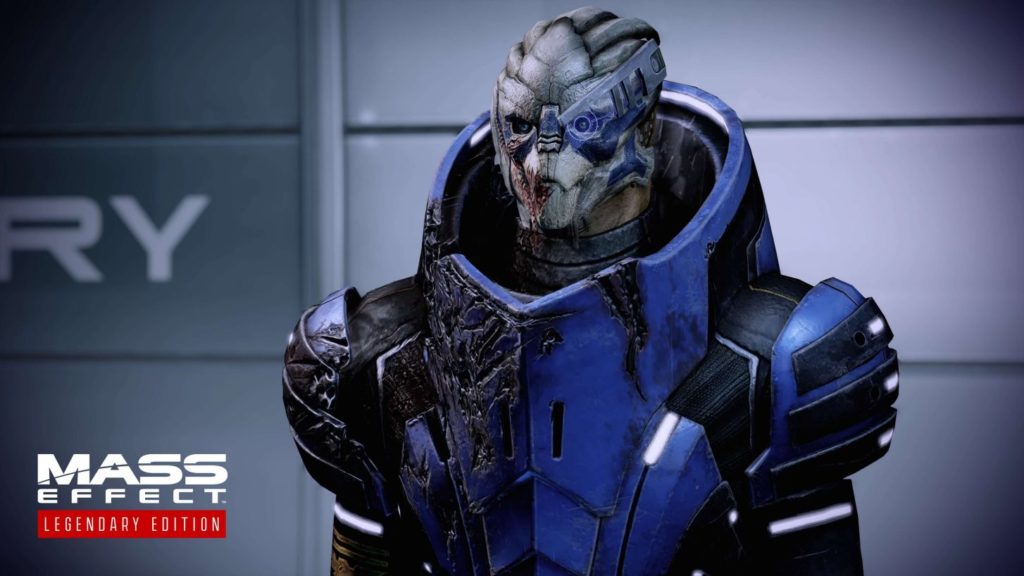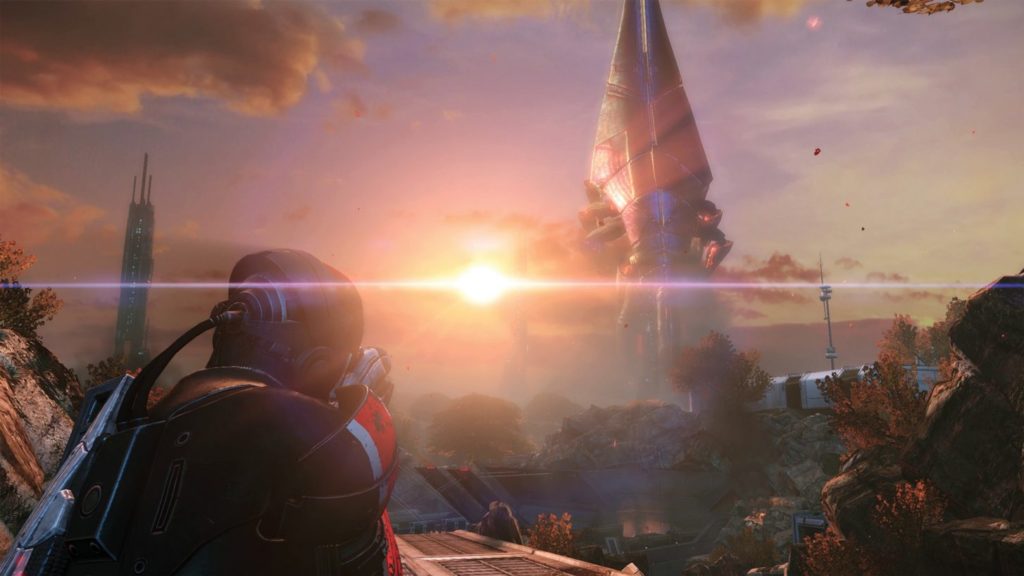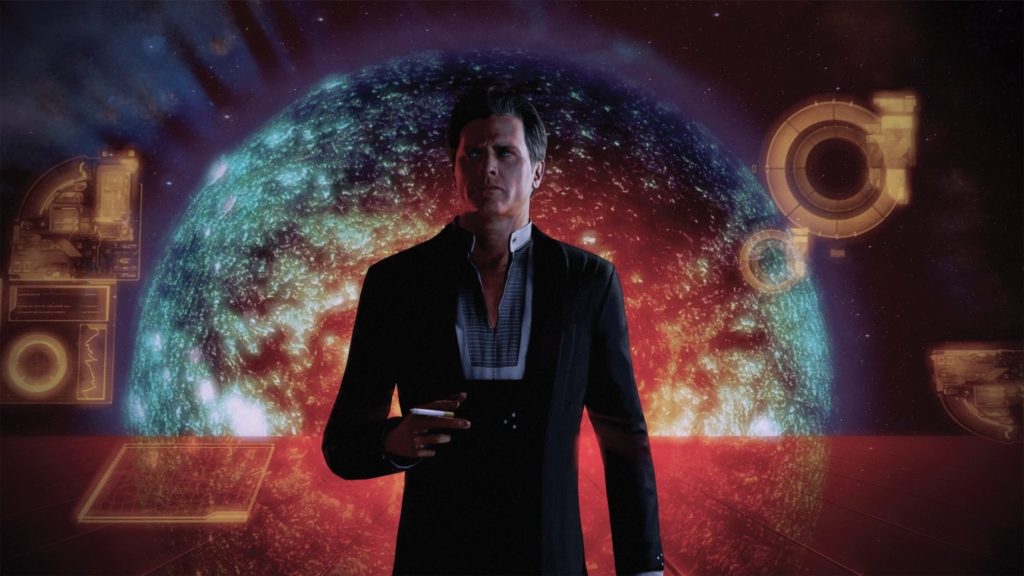Mass Effect.
Its mere mention is enough to unearth old arguments.
The series began as a pioneer for interactive storytelling, standing on the back of Knights of the Old Republic, the studio’s previous SciFi RPG that was critically acclaimed by more than just die-hard Star Wars fans. But Mass Effect was another step entirely, with no established IP to give it footing. Suffice it to say, Bioware delivered. The series took off, and by the second entry it grew from a nerdy RPG with third person shooting in between to a full fledged AAA shooter for the masses. When Mass Effect 3 was near release, players both old and new were practically frothing at the mouth to get their hands on it. Promises of the series finale being “different for everyone who plays it” had imaginations running wild. And then it was released, and impossible hype was met with game development realities. Endless outrage, memes, twitter trolling. Coupled with the Day 1 DLC and lootbox drama, Bioware was inundated with negativity. Any redeeming qualities the game possessed were cast aside and the series was permanently tarnished in the eyes of its most loyal followers.
Fast forward around 8 years. A spinoff game is released (with its own controversy), the studio moves on to other projects. November 7th arrives (Known as ‘N7 Day’ to fans as a reference to the in-universe Special Forces). Bioware announces an untitled Mass Effect sequel, with an imminently arriving ‘Legendary Edition’ collection of the original trilogy. For some, this would be a time to experience the series for the first time. For others, like myself, this would be an opportunity to revisit an old flame and see if it lives up to the nostalgia.
Mass Effect Remastered
As far as creating a smooth and seamless way to play all three games, Bioware are to be commended. The launcher provides straightforward access to all three titles, with quick-resume available to take you back to where you left off in your current playthrough. The settings menu is a little threadbare, but further settings are available within each title. No extra downloads are required, and DLCs do not need to be managed. All content is streamlined into the base games, and in some cases now appearing more naturally, instead of the old ‘check your inbox’ style. The once segmented trilogy is now a truly complete package.
The Changes
When it comes to ‘graphical fidelity’, things are almost universally improved. Textures are much sharper, with characters and environments looking a lot less muddy than before. Many models and effects look more consistent across the entire trilogy, with some looking better than ever. But some ornamental assets with limited poly counts stick out like sore thumbs. Assets like cars, fountains and other background doodads can be jarring when compared to upscaled squad models, and remind you that this is a case of fresh paint on an old fence. Character models are not immune to this either. Shepard himself (I played as Male Shepard with the default model) is looking his most grand, but soon after his introduction he greets Captain Anderson, whose model gives off significant uncanny valley vibes. I ran into a handful that gave me a similar feeling, and sometimes even on the better faces like Shepards, eyes would behave strangely and open very wide or flicker mid conversation. For the vast majority of the game however, characters look better than ever before.
Lighting is far more realistic in many places, and some scenes are finally lit appropriately. That being said, in some cases there is an issue of tonal change. As was noticed by some fans from the teaser content released prior, scenes such as the opening mission on Eden Prime look totally different from the original. Where the sky was once shrouded in nightmarish red clouds, a calm afternoon sunset resides. This changes the mood of the scene significantly, and while it provides the player with a better look at the mysterious alien ship ascending into the heavens, it makes the moment significantly less ominous. This is also present on other planets, where zones that were formally dark and apocalyptic appear washed out and muted.
Regarding performance (I played on PC), my own experience was mostly uninterrupted, though this was not the case for everyone. Indoor areas were no issues at all, but some free-roam planets introduced some minor hitching that came and went without much warning. I experienced no game breaking bugs or crashes however, though this clearly varies from computer to computer.
Gameplay changes were mostly minor. The most significant alteration of note would be that all classes have access to all weapon types. This used to be the domain of the ‘Soldier’ class, who now feels underpowered by comparison. This change does give a lot more variety to the other classes, who usually end up doing the same thing over and over for each encounter, but can now pull out a shotgun or sniper rifle to spice things up. This change was likely a priority, as many critics complain that the gameplay in the original was always its weakest link. While it is true that it can be quite repetitive (especially with the copy and pasted side areas for non story missions), I personally find a certain charm in its simpler style. The second and third games both work around a layered defence system for enemies, which force the player to use different abilities for different defence types. 1 has no such system, so biotics like singularity are extremely powerful against almost all enemy types.
Thankfully, the gameplay of ME:1 is unaltered, so that defence system for enemies isn’t present.
Other small changes were also made. The leveling progression has been rebalanced, squishing the level cap which seemed to be unintrusive. I still felt like I received levels and skills at an appropriate pace. The Mako has also been improved, feeling a little more weighty while still being able to scale near 90 per cent cliffs. Loading screens are faster than before, with much improved speeds in places like the infamous ‘elevators’. The developers covered this originally with some squad small talk or news articles nudging you towards side quests. With the improved loading screens these would be missed, so they’ve added the option to ‘skip’ and finish the ride almost instantly if you’re not interested in hearing this chit chat.
One area where I wish they made some changes is the ‘bypass’ system. The same Frogger-esque ‘move cursor to the center of the circle while avoiding obstacles’ minigame is played every single time you need to unlock something. The minigame is easy enough to be boring but difficult enough to distract you from the game itself. It stops being novel after the second time and becomes completely tedious by the hundredth. Thankfully the similarly annoying ‘salvage excess weapons and mods for omnigel’ means that by the later half of the game you can use this resource to skip the minigame entirely. In ME:2, the minigame is split up between ‘bypass’ memory game and the ‘hacking’ picture matching, with the third ditching the mechanic altogether. This is obviously not the biggest deal in the world, but it felt like a missed opportunity to tweak a more annoying aspect of the games..
The Game
With the changes addressed, we have an interesting opportunity to discuss the games themselves. Is Mass Effect still as enjoyable an experience in 2021 as it was in 2007?
To put it plainly, yes. Sure. it has had a makeover and some minor flaws have been addressed, but the core of what it is remains unchanged, for better or for worse. The story and universe are still among the best gaming has ever seen, and if the premise doesn’t get you hooked, the characters will. Thanks to the dialogue wheel, conversations feel like they have multiple approaches, while subtly guiding you along the central plot points. The main story is intriguing and exciting, and the villains are fearsome yet fascinating. The more I played, the more I wanted to play, if that makes sense.
No game has matched the feeling of being the commander of your own ship and exploring new worlds with your crew. Mass Effect 1 feels like the closest in the series to something like Star Trek, with a heavy focus on exploration and deviation from the plot. Sadly, the exploration elements feel limited in scope by today’s standards. Most non story planets are simple ‘Land in the Mako, go to three points of interest with wasteland in between, maybe fight some space baddies’. That being said, even with this predictability the side missions still feel memorable. Investigating mysterious distress signals, shutting down a rogue VI, negotiating with a cult leader to save his followers without violence; These sidequests make the galaxy feel alive. Though simple by today’s standards, they remain the aspect of the game I enjoy most on new playthroughs.
Overall, Mass Effect 1 had me hooked from start to finish, even as a franchise veteran. Key moments that were cherished memories were proven to be more than nostalgia, and the climax of the game still blew me away. As soon as the credits had come to an end, I jumped into the sequels.
Mass Effect 2 and 3
While the lion’s share of changes were made to the original title, Mass Effect Legendary Edition also contains Mass Effect 2 and Mass Effect 3. These titles received similar 4k support and visual improvements, but were not in the same dire need of attention as the first. The character creator system has been streamlined across all three, so custom shepherds should look more consistent when importing saves from game to game. The now iconic ‘FemShep’ default female model from 3 is now available across all titles as well.
With the creation of the Legendary Edition, the three standalone titles feel more like a unified game than ever. That being said, each game still feels distinct, with noticeable differences in both gameplay and tone across each.
As mentioned above, Mass Effect has a heavy focus on galactic exploration and discovery. A foreboding cloud of darkness approaches the Milky Way, but things seem to be stable. Your role as Commander of the Normandy takes you to dangerous places, but civilization is at peace.
Mass Effect 2s plot takes you instead to the dark underbelly of the galaxy, dealing with mercenary bands and cartels, recruiting assassins and vigilantes to help with your secret mission. This recruitment process is the primary focus of the game, with much of your time spent assembling members for your team, and gaining their loyalty by helping them settle their emotional baggage (which, in most cases, is some form of ‘Daddy Issue’). Exploration is limited, and most missions are very linear. But combat is considerably improved. Fights are more challenging and require more tactical use of squad abilities to overcome different foes. Mass Effect 2 suffers at times from being the middle child, but is the series at its best when it comes to interacting with your crew.
Mass Effect 3 remains an emotional gut punch from minute one. The galaxy is at war, and the outlook is extremely bleak. Much of your time is spent rallying what forces you can, and brokering deals with different factions to assist in your hour of need. It’s a race against time, and gone are the days of cozy exploration. All of your efforts from the previous 2 titles have come to this, but with the stakes so high there is no time to smell the roses. Mass Effect 3’s gameplay and story are the series at its most frenetic, but I did find myself pining for the halcyon days of the series beginning. That being said, Mass Effect 3 contains the mythical ‘Citadel DLC’, the mother of all fan service and a love letter to the community from the developers. This brief escape from the realities of the galaxy at war scratched that itch immediately.
While there is no changing the core of Mass Effect 3s controversial finale, I do feel time has been kind to it. Additional patches and the addition of the Citadel DLC have given fans a more fleshed out sunset for the team. Enough time has passed since the original ME3 drama. I think many players in the disappointed crowd have been through all the stages of grief, and are ready to once again step into their N7 boots, and enjoy this trilogy once again. New fans will never know the difference, and will be treated with one of the greatest Sci Fi games ever made from start to finish.
As for myself, I finished the trilogy feeling satisfied with my choices and the result. Even after however many playthroughs, I still get the same bittersweet feeling in my heart. One of happiness and satisfaction mixed with a somberness. Once again letting go of Commander Shepard, the Normandy, and its crew. To indulge in the ultimate cliche, the real ending was the friends we made along the way. Looking forward to my next go around.
Mass Effect Legendary Edition – Highly Recommended







iCkDLtasvdP
mhBTpLkVQI
https://night-lady.co.il
zDqiHxlZWC